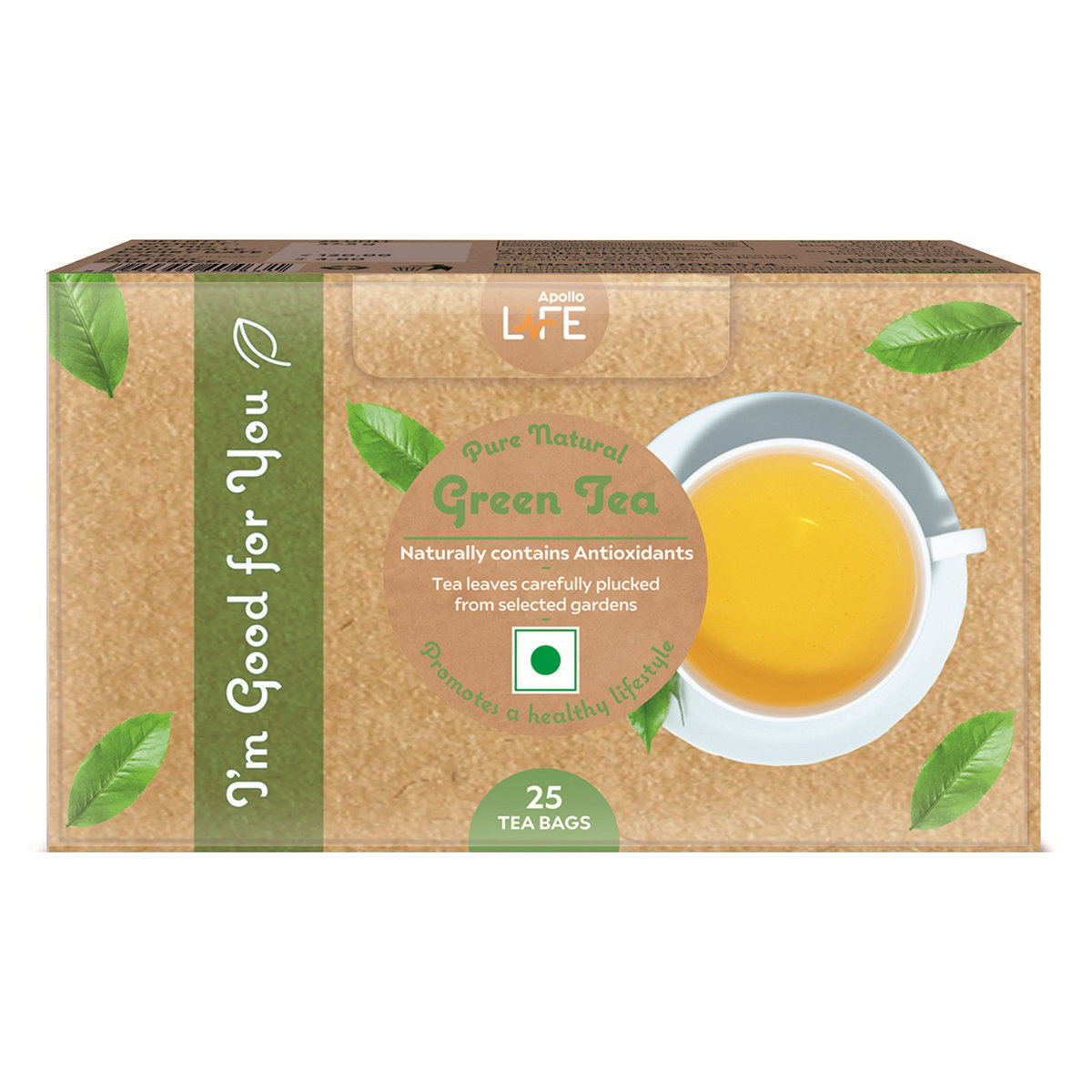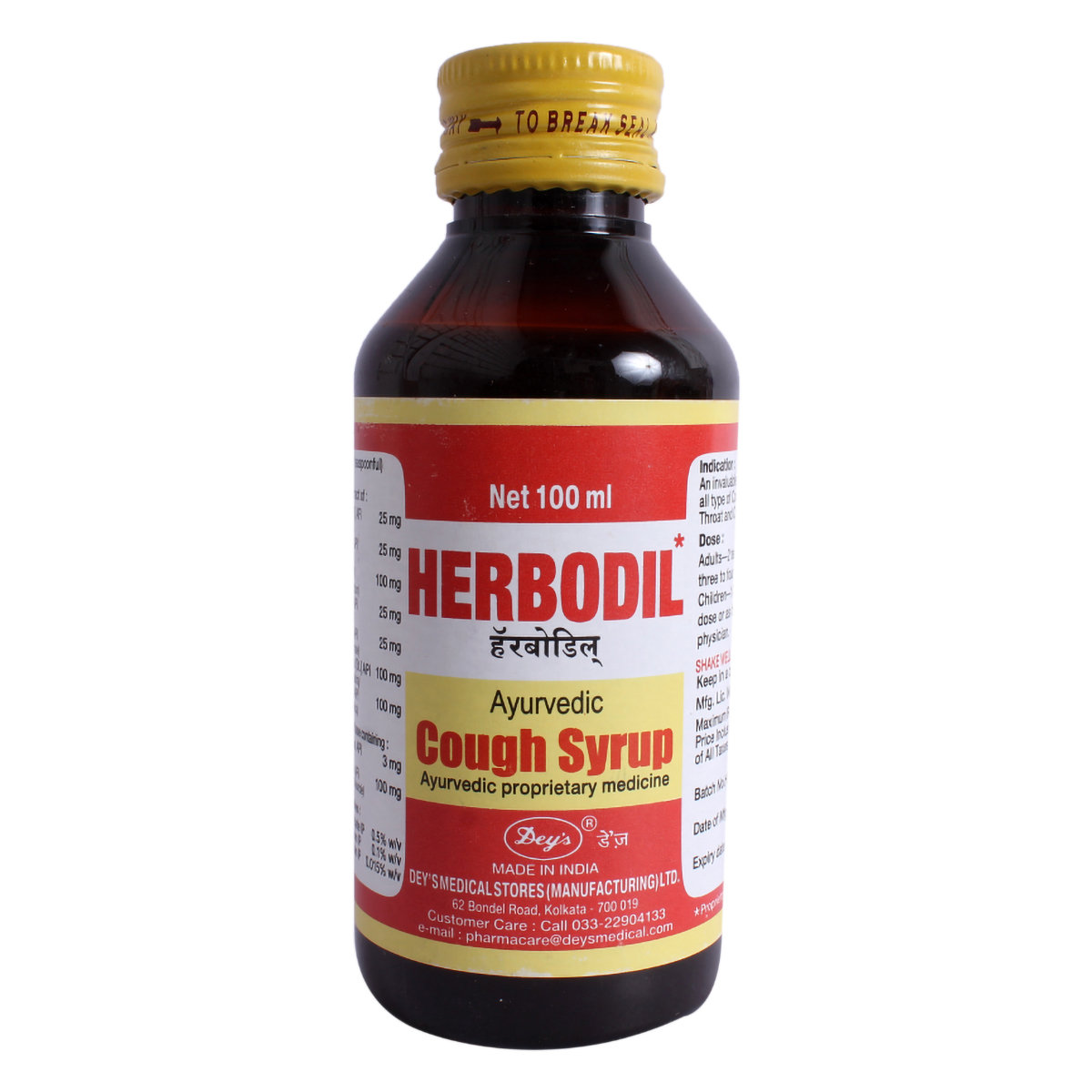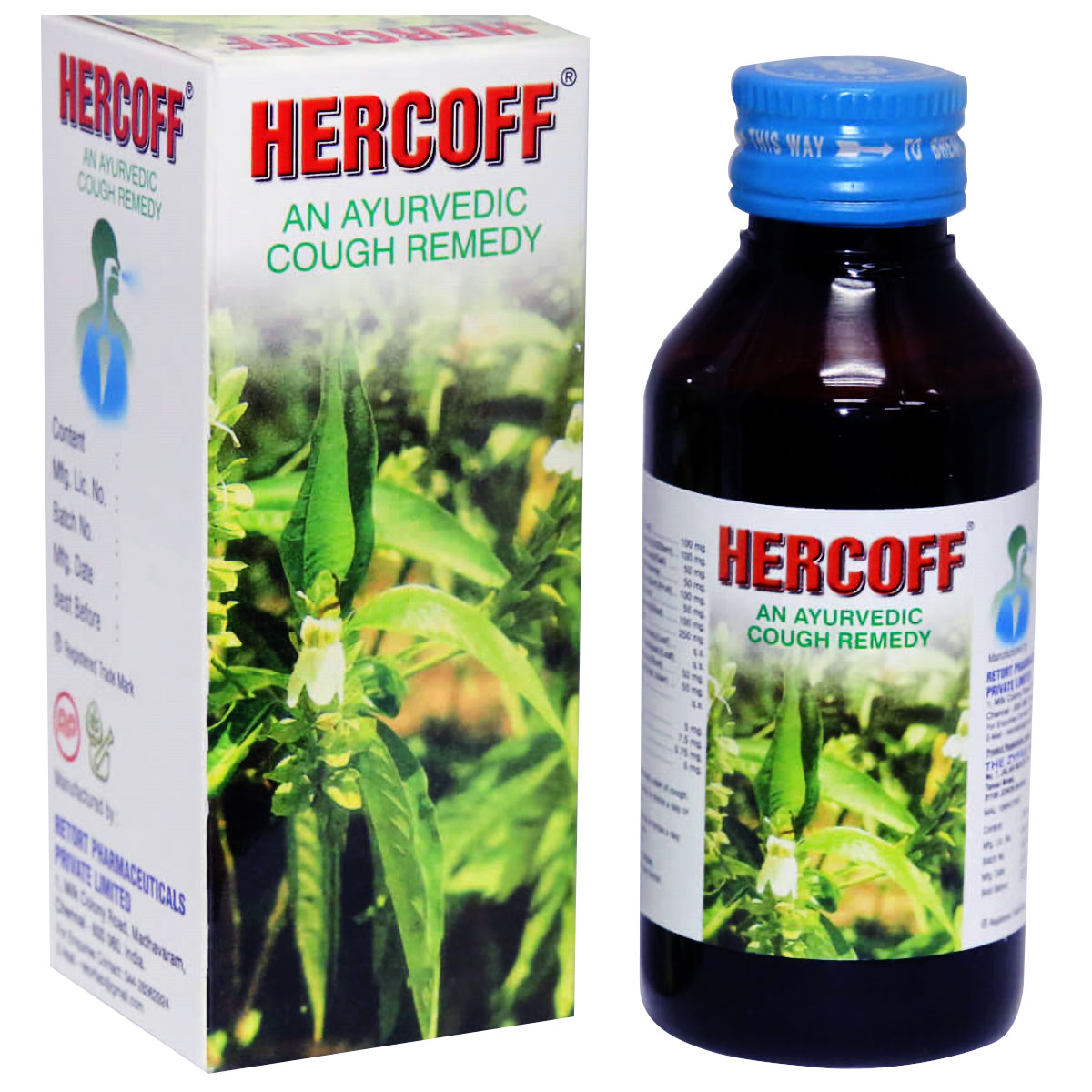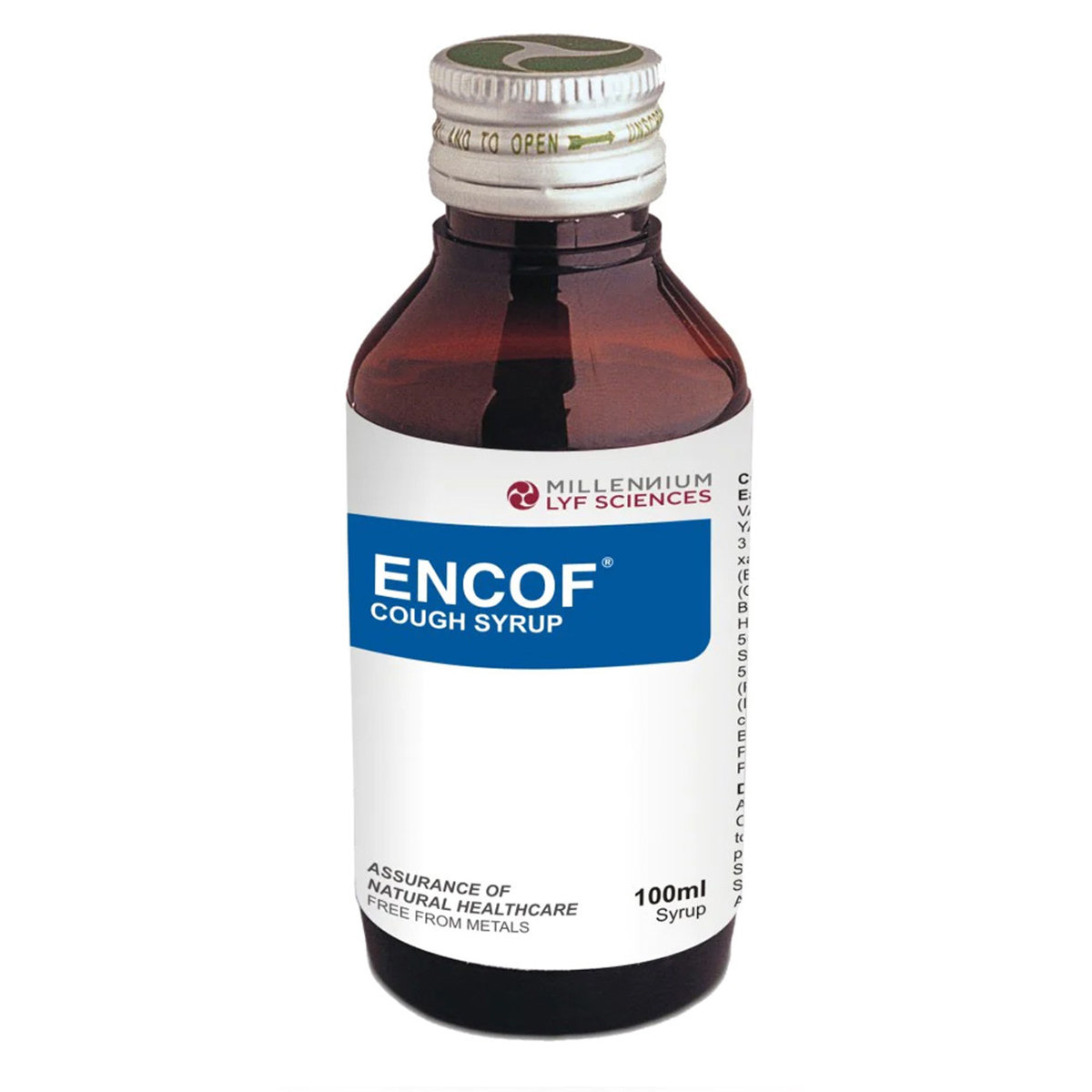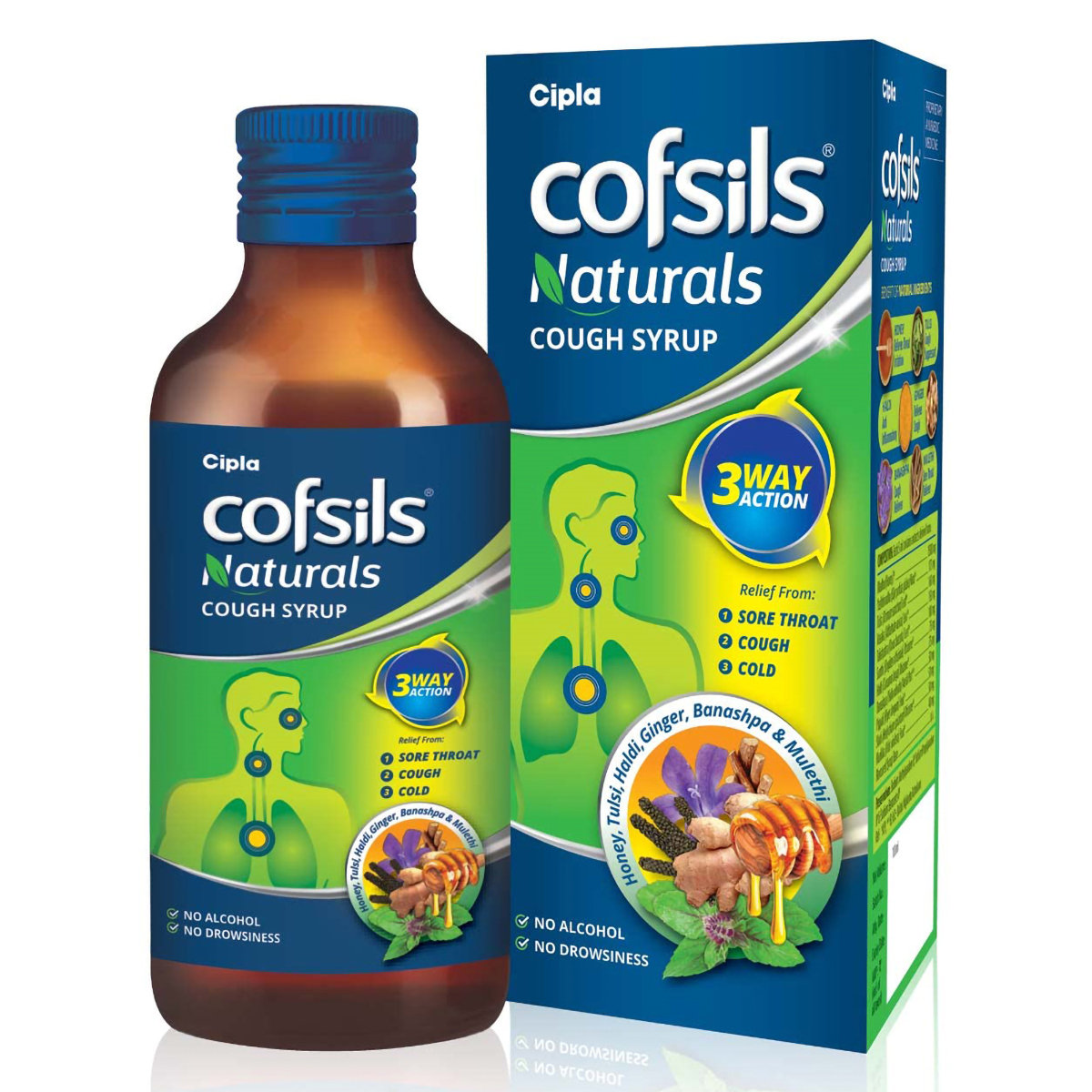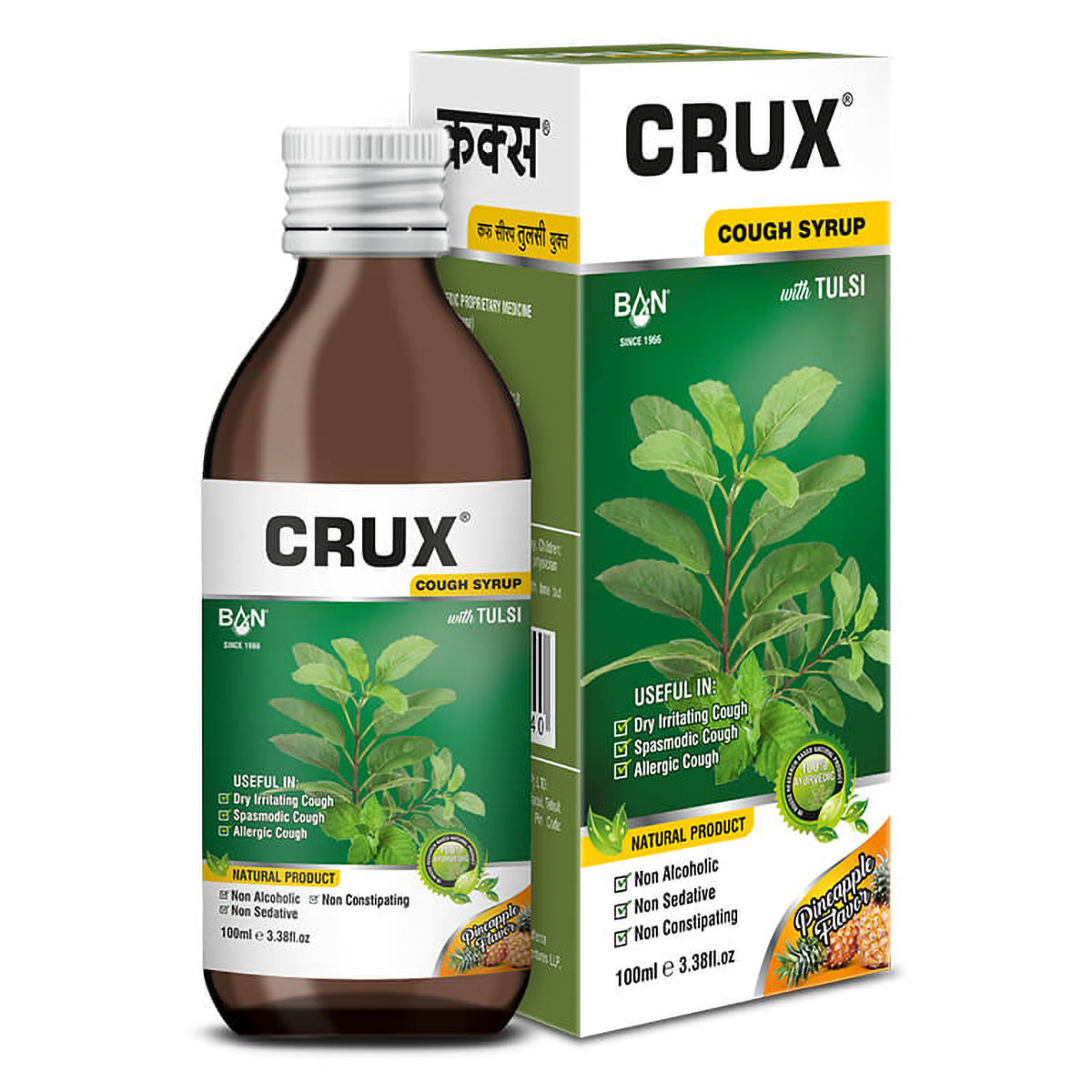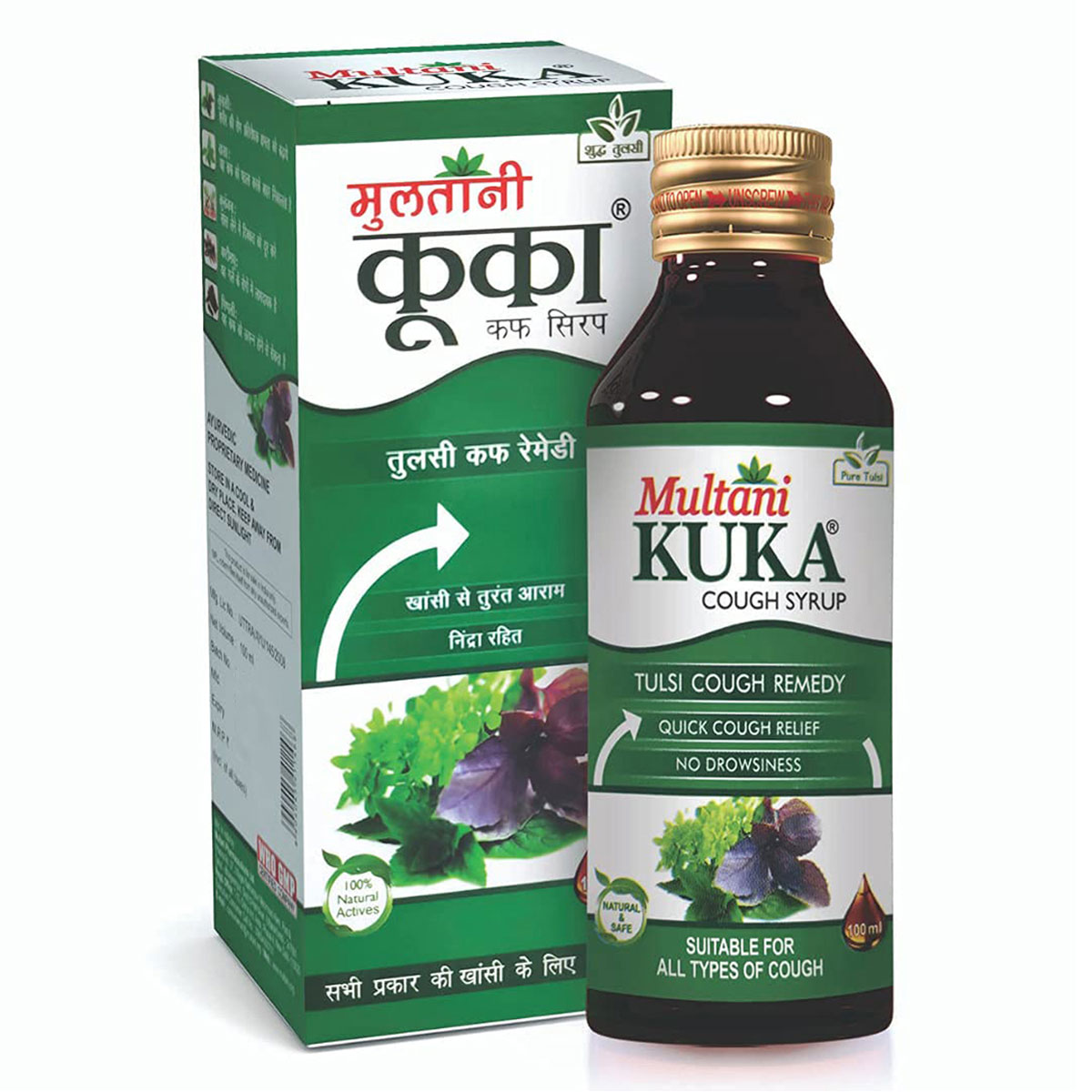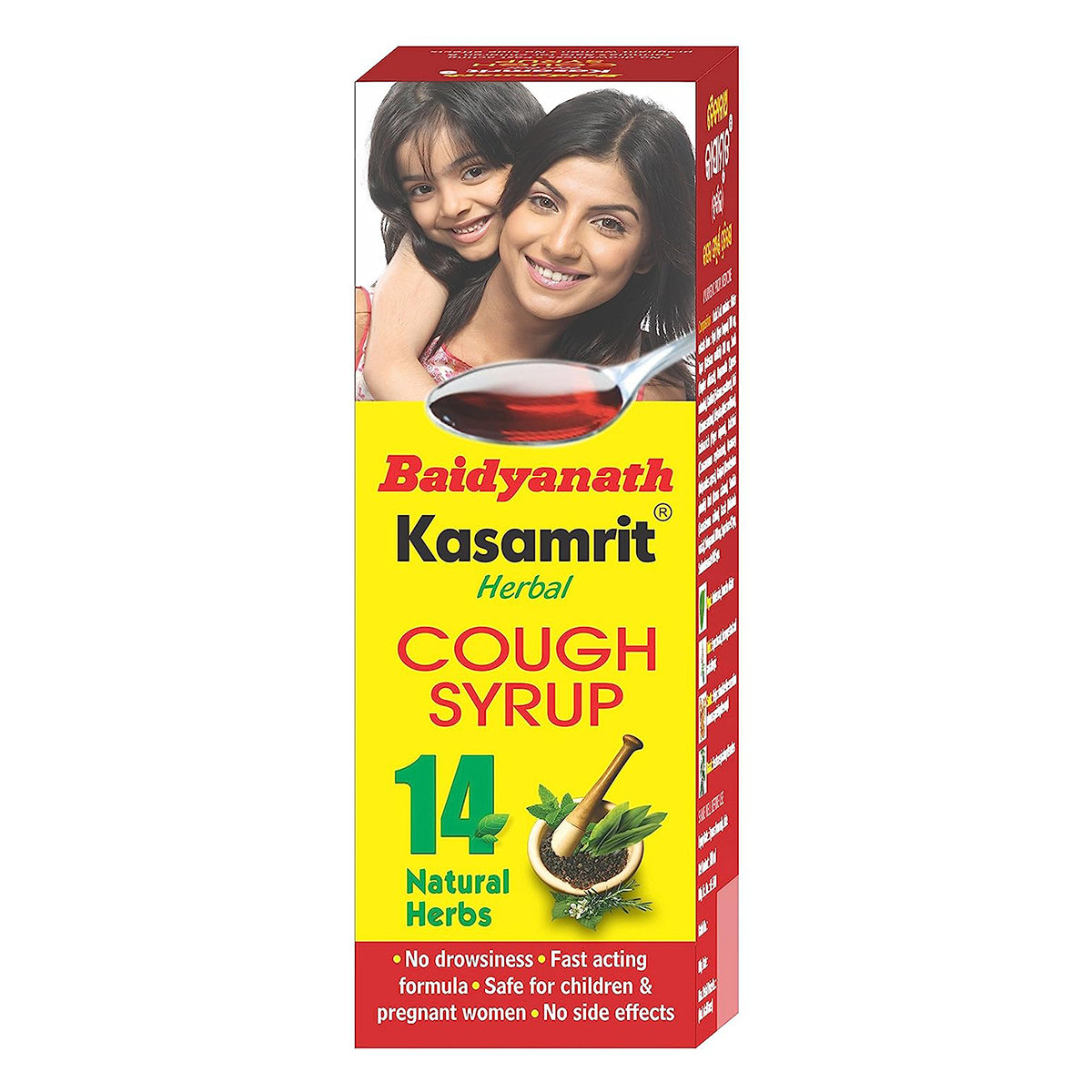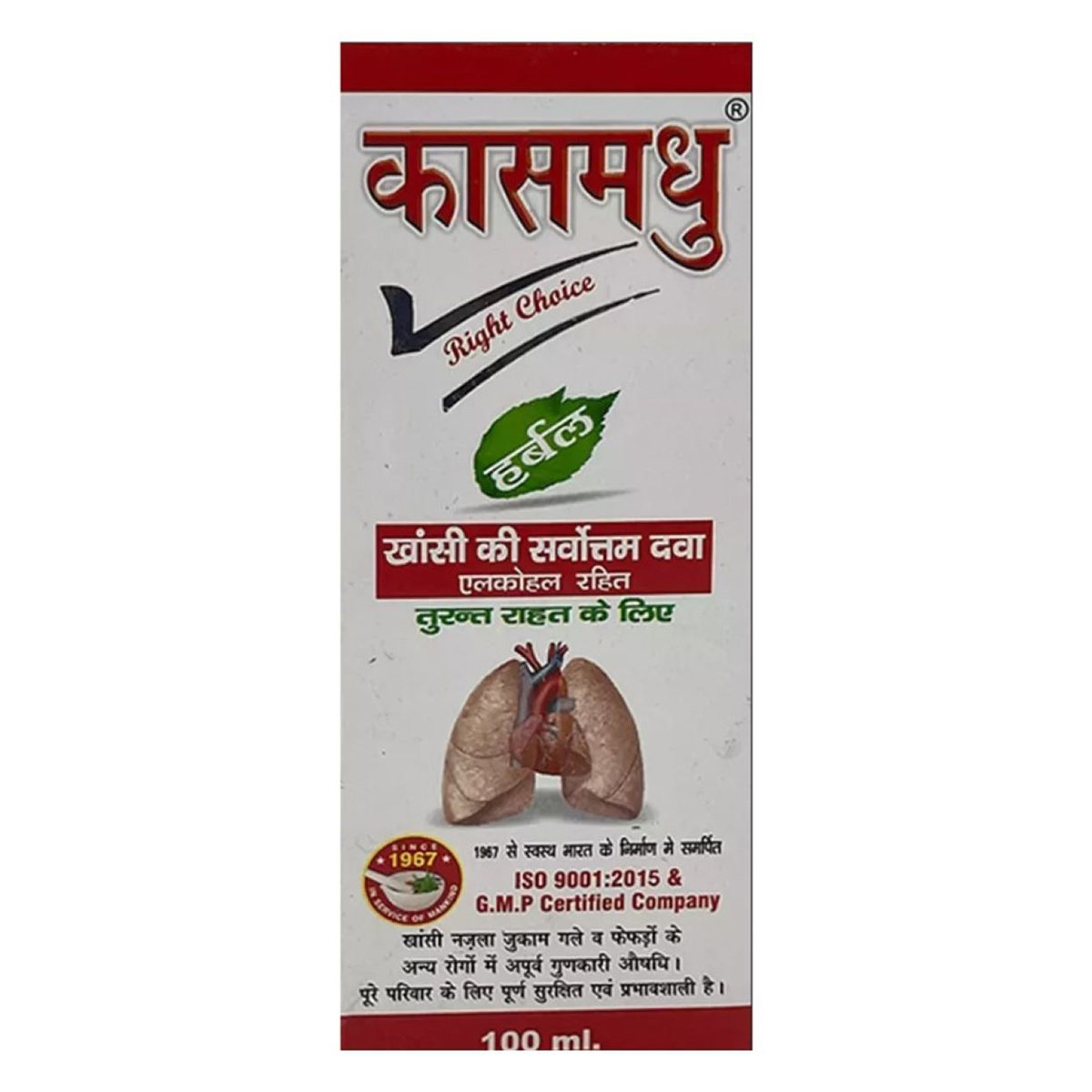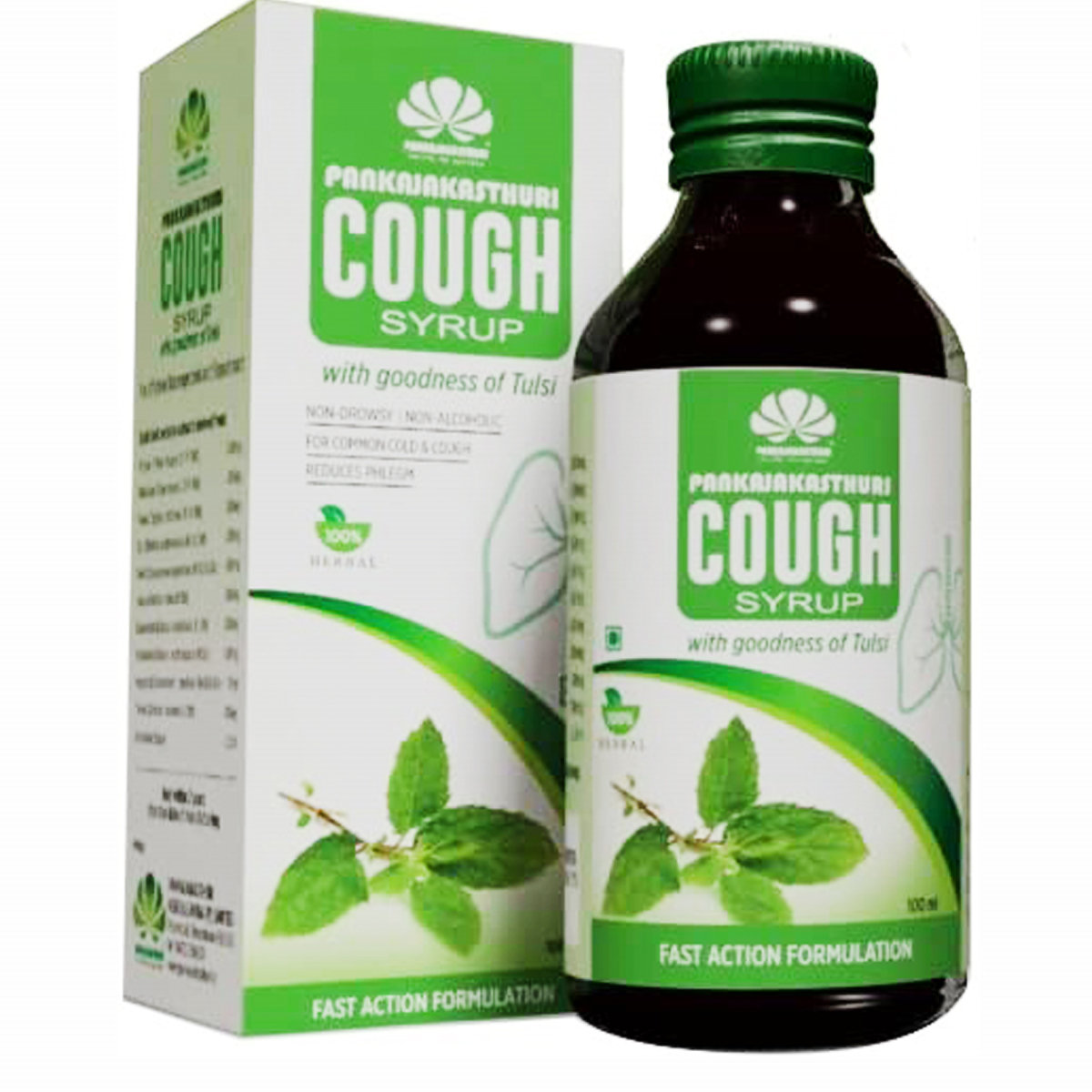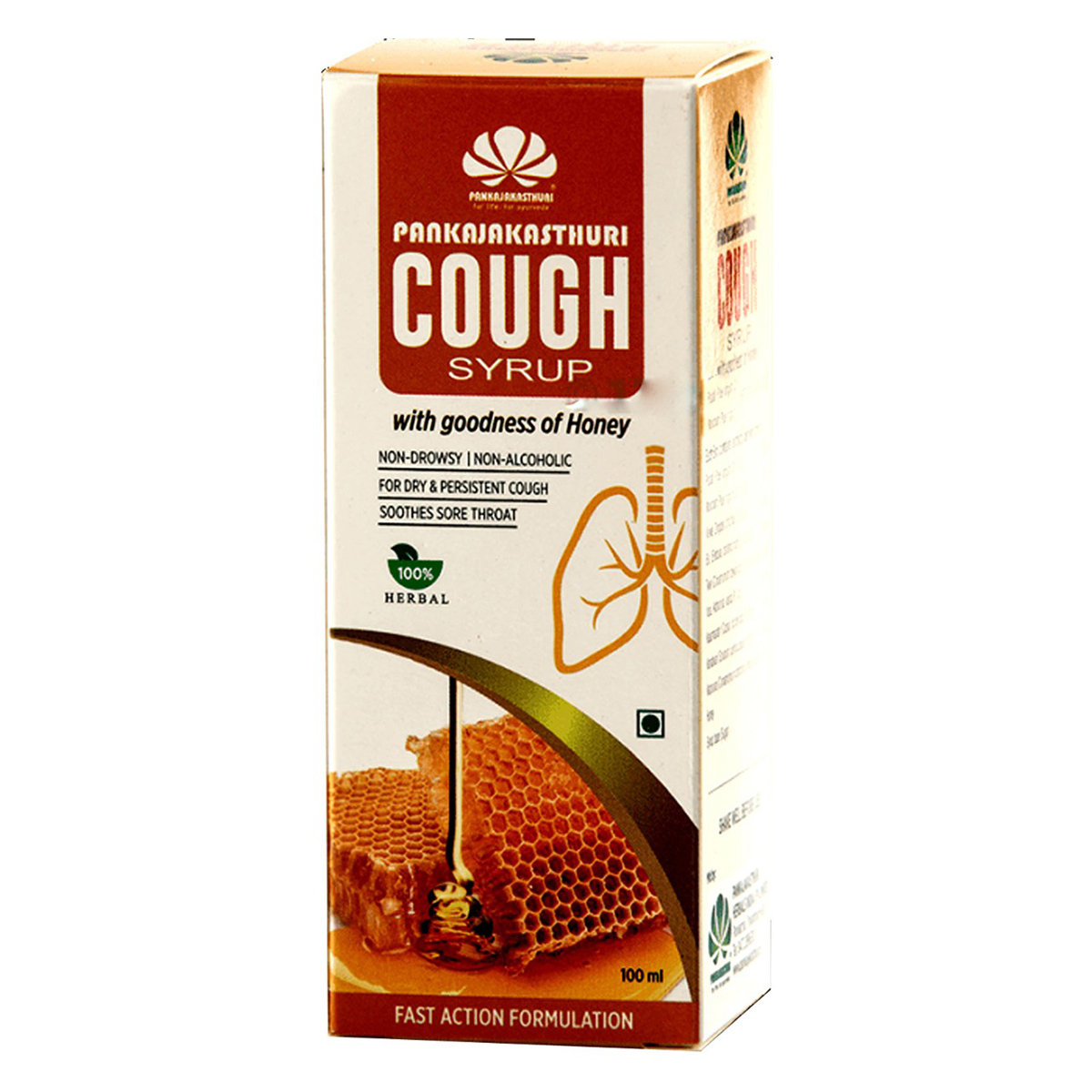Cofsils Cough Syrup 100 ml
MRP ₹92.5
(Inclusive of all Taxes)
₹2.8 Cashback (3%)
Provide Delivery Location

secured payment

india's most trusted pharmacy

genuine products
Manufacturer/Marketer :
Consume Type :
Expires on or after :
Return Policy :
About Cofsils Cough Syrup 100 ml
Cofsils Cough Syrup 100 ml belongs to a group of medicines called expectorants and cough products used to provide relief from cough. Additionally, Cofsils Cough Syrup 100 ml may also help in providing relief from allergies and nasal congestion due to colds. Coughing (dry or productive) is the body's way of clearing irritants (like allergens, mucus or smoke) from airways, thereby preventing respiratory infection.
Cofsils Cough Syrup 100 ml combines three drugs: Diphenhydramine, Ammonium chloride, and Sodium citrate. Diphenhydramine works by blocking the action of a chemical substance called histamine, which is responsible for causing allergic reactions. Ammonium chloride helps remove phlegm/mucus from the airways by decreasing its stickiness. Sodium citrate helps reduce congestion, making it easier to cough out through the mouth. Together, Cofsils Cough Syrup 100 ml provides relief from cough.
Take Cofsils Cough Syrup 100 ml as prescribed. Depending on your medical condition, you are advised to take Cofsils Cough Syrup 100 ml for as long as your doctor has prescribed it for you. Sometimes, you may experience certain common side effects such as headache, stomach upset, dizziness, tiredness, and dry mouth. Most of these side effects do not require medical attention and resolve gradually over time. However, you are advised to talk to your doctor if you experience these side effects persistently.
Consult your doctor before taking Cofsils Cough Syrup 100 ml if you are pregnant or breastfeeding. Cofsils Cough Syrup 100 ml may cause dizziness, so drive only if you are alert. Cofsils Cough Syrup 100 ml should be given to children only if prescribed by the doctor. Avoid consuming alcohol with Cofsils Cough Syrup 100 ml as it could lead to increased dizziness. Inform your doctor about all the prescription, non-prescription and herbal medicines you take to rule out any side effects/interactions.
Description
The Cofsils Cough Syrup 100 ml provides an effective, quick relief for symptoms of colds, coughs, and sore throats. Cofsils medicated syrup uses a three-way action plan to combat various coughs and symptoms associated with them, all in under 15 minutes. Its sugar-free formula is suitable for people who are carefully monitoring their sugar intake. It addresses multiple symptoms like a stuffy nose, persistent cough, and throat discomfort, making it a comprehensive solution for cold and cough woes.
Thanks to its anti-allergic, expectorant, and mucolytic actives, it can tackle different types of cough and cold symptoms effectively. The dosage of this Cofsils syrup is tailored for adults and children of different age groups, making it safe for all ages. Not to mention, the non-drowsy formula lets you get on with your day without feeling sluggish. The Cofsils medicated cough syrup provides broad-spectrum relief from a range of symptoms associated with coughs and colds.
Features
- Comprehensive 3-way action
- Rapid symptom relief in 15 minutes
- Sugar-free formula
- Multi-symptom relief
- Suitable for all ages
Key Ingredients
Uses of Cofsils Cough Syrup 100 ml

Have a query?
Directions for Use
Key Benefits
Cofsils Cough Syrup 100 ml is a combination of three drugs: Diphenhydramine, Ammonium chloride and Sodium citrate. Cofsils Cough Syrup 100 ml is used to relieve a cough accompanied by cold symptoms such as sore throat, runny nose, watery eyes, and sneezing. Additionally, Cofsils Cough Syrup 100 ml helps in providing relief from allergies. Diphenhydramine is an antihistamine that works by blocking the action of a chemical substance called histamine, which is responsible for causing allergic reactions. Ammonium chloride is an expectorant that helps remove phlegm/mucus from the airways by decreasing its stickiness. Sodium citrate is a mucolytic agent that helps loosen the congestion, making it easier to cough out through the mouth. Together, Cofsils Cough Syrup 100 ml provides relief from cough.
Storage
- Inform your doctor about dizziness symptoms. They may adjust your medication regimen or prescribe additional medications to manage symptoms.
- Follow your doctor's instructions for taking medication, and take it at the same time every day to minimize dizziness.
- When standing up, do so slowly and carefully to avoid sudden dizziness.
- Avoid making sudden movements, such as turning or bending quickly, which can exacerbate dizziness.
- Drink plenty of water throughout the day to stay hydrated and help alleviate dizziness symptoms.
- If you're feeling dizzy, sit or lie down and rest until the dizziness passes.
- Track when dizziness occurs and any factors that may trigger it, and share this information with your doctor to help manage symptoms.
- Get enough sleep. Maintain a regular sleep cycle.
- Eat a healthy diet and exercise regularly.
- Manage stress with yoga or meditation.
- Limit alcohol and caffeine.
- Avoid driving or operating machinery unless you are alert.
- If taking a prescription drug causes euphoria as a side effect. Discuss with your physician. Medication changes or dosage adjustments can be required.
- Activities that benefit stabilize mood include breathing techniques, meditation, and moderate yoga.
- Normal sleep habits, as rest is necessary for emotional balance.
- Prepare for a restful night's sleep: Develop a calming pre-sleep routine, like reading or meditation, to help your body relax and prepare for sleep.
- Create a sleep-conducive Environment: Make bedroom a sleep haven by ensuring it is quiet, dark and calm.
- Follow a Sleep Schedule: Go to bed and get up at the same time every day to help regulate your body's internal clock and increase sleep quality.
- Try relaxing techniques like deep breathing, mindfulness meditation and any others.
- Limit stimulating activities before bedtime: Avoid stimulating activities before bedtime to improve sleep quality.
- Monitor Progress: Keep track of your sleep patterns to identify areas for improvement.
- Consult a doctor if needed: If these steps don't improve your sleep, consult a doctor for further guidance and therapy.
- Notify your doctor immediately if you experience tremors or involuntary shaking after taking medication or adjusting your medication regimen.
- Your doctor may adjust your medication regimen or recommend alternative techniques like relaxation, meditation, or journaling to alleviate tremor symptoms.
- Your doctor may direct you to practice stress-reducing techniques, such as deep breathing exercises, yoga, or journaling.
- Regular physical activity, such as walking or jogging, can help reduce anxiety and alleviate tremor symptoms.
- Your doctor may recommend lifestyle changes, such as avoiding caffeine, getting enough sleep, and staying hydrated, to help manage tremors.
- Maintain regular follow-up appointments with your doctor to monitor tremor symptoms and adjust treatment plans as needed.
- Skin rash caused by allergies is due to irritants or allergens. Therefore, avoid contact with such irritants.
- Consult your doctor for proper medication and apply an anti-itch medication. Follow the schedule and use the medication whenever needed.
- Protect your skin from extreme heat and try to apply wet compresses.
- Soak in the cool bath, which gives a soothing impact to the affected area.
Drug Warnings
Do not take Cofsils Cough Syrup 100 ml if you are allergic to any of its contents. Inform your doctor before taking Cofsils Cough Syrup 100 ml if you have asthma, prostate problems, narrow-angle glaucoma, stomach or bowel ulcers, glucose-galactose malabsorption, sucrase-isomaltase deficiency, fructose intolerance, kidney or liver problems; if you are taking antidepressants or anti-Parkinson drugs or have taken them in the last 14days. Consult your doctor before taking Cofsils Cough Syrup 100 ml if you are pregnant, planning for pregnancy or breastfeeding. Cofsils Cough Syrup 100 ml may cause dizziness, so drive only if you are alert. Avoid consuming alcohol along with Cofsils Cough Syrup 100 ml as it could lead to increased dizziness.
Drug-Drug Interactions
Drug-Drug Interactions
Login/Sign Up
When Cofsils Cough Syrup 100 ml is taken with Eliglustat, it can cause a decrease in metabolism.
How to manage the interaction:
Taking Cofsils Cough Syrup 100 ml with Eliglustat is not recommended, please consult your doctor before taking it. It can be taken if prescribed by your doctor. Do not stop taking any medication without consulting your doctor.
When Thioridazine is taken with Cofsils Cough Syrup 100 ml, it can slow down the way Cofsils Cough Syrup 100 ml is broken down in the body.
How to manage the interaction:
Taking Cofsils Cough Syrup 100 ml with Thioridazine is not recommended, please consult your doctor before taking it. It can be taken if your doctor advises it. Do not stop taking any medication without consulting your doctor.
Taking Cofsils Cough Syrup 100 ml with Potassium chloride can increase the risk of stomach ulcers.
How to manage the interaction:
Taking Cofsils Cough Syrup 100 ml with Potassium chloride is not recommended, as it can lead to an interaction, but it can be taken if a doctor has prescribed it. However, if you experience severe stomach pain, bloating, sudden lightheadedness or dizziness, nausea, vomiting (especially with blood), decreased hunger, or dark, tarry stools, contact your doctor. Do not stop taking any medication without consulting your doctor.
Taking Cofsils Cough Syrup 100 ml with Sodium oxybate can enhance the sedative effects on the central nervous system.
How to manage the interaction:
Taking Cofsils Cough Syrup 100 ml with Sodium oxybate is not recommended, but it can be taken if prescribed by a doctor. However contact your doctor if you experience shortness of breath, increased sweating, palpitations, or confusion. Do not stop using any medications without consulting a doctor.
Taking Cofsils Cough Syrup 100 ml and Potassium citrate together can increase the risk of stomach ulcers, bleeding, and gastrointestinal injury.
How to manage the interaction:
Taking Cofsils Cough Syrup 100 ml with Potassium citrate is not recommended, as it may lead to an interaction, it can be taken if prescribed by the doctor. However, if you experience severe stomach pain, bloating, sudden lightheadedness or dizziness, nausea, vomiting (especially with blood), decreased hunger, or dark, tarry stools, consult the doctor immediately. Do not discontinue any medications without a doctor's advice.
Taking ketamine with Cofsils Cough Syrup 100 ml can increase the risk of side effects.
How to manage the interaction:
Although taking Cofsils Cough Syrup 100 ml with Ketamine can result in an interaction, they can be taken together if prescribed by your doctor. However, if you experience severe dizziness, confusion, drowsiness, confusion, difficulty concentrating, or excessive sleepiness consult your doctor immediately. Do not discontinue using any medications without consulting a doctor.
Cofsils Cough Syrup 100 ml reduces the blood levels and effectiveness of tamoxifen.
How to manage the interaction:
Although taking Cofsils Cough Syrup 100 ml with Tamoxifen can possibly reduce the effectiveness of Tamoxifen, they can be taken together if prescribed by your doctor. Do not stop using any medications without first talking to your doctor.
Cofsils Cough Syrup 100 ml increases the blood levels of Brexpiprazole. This increases the risk of Side effects.
How to manage the interaction:
Taking Cofsils Cough Syrup 100 ml with Brexpiprazole together can possibly result in an interaction, but it can be taken if your doctor has advised it. If you notice any of these symptoms - feeling tired, unusual muscle movements, muscle spasms, shaking or jerking in your arms and legs, feeling dizzy or lightheaded, or fainting - contact your doctor right away. Do not stop using any medications without talking to a doctor.
Topiramate can induce elevated body temperature and decreased sweating, which can be exacerbated when combined with drugs that have similar effects, such as Cofsils Cough Syrup 100 ml.
How to manage the interaction:
Although taking Cofsils Cough Syrup 100 ml with Topiramate can possibly result in an interaction, they can be taken together if prescribed by your doctor. It is essential to stay hydrated by drinking enough fluids, especially in hot weather and when doing physical activity. Contact your doctor immediately if you notice decreased sweating, fever, dizziness, drowsy, or lightheadedness. Do not discontinue using any medications without consulting a doctor.
Coadministration of Zonisamide with Cofsils Cough Syrup 100 ml can induce elevated body temperature and decreased sweating.
How to manage the interaction:
Although taking Cofsils Cough Syrup 100 ml with Zonisamide can result in an interaction, they can be taken together if prescribed by your doctor. It is essential to stay hydrated by drinking enough fluids, especially in hot weather and when doing physical activity. Contact a doctor immediately if you notice decreased sweating, fever, dizziness, drowsy, or lightheadedness. Do not discontinue using any medications without consulting a doctor.
Drug-Food Interactions
Drug-Food Interactions
Login/Sign Up
Diet & Lifestyle Advise
- Gargle with salt water for relief from sore throat.
- Avoid smoking and consumption of alcohol.
- Avoid dairy products such as milk, as it may increase mucus production. Also, avoid processed or refined foods. Replace baked foods, fried foods, white bread, white pasta, french fries, sugary desserts and chips with green leafy vegetables.
- Drink plenty of fluids to avoid a dry throat while you have a cough. It also helps loosen mucus.
- Avoid citrus fruits as they may worsen the cough. Eat fruits rich in water content, such as pears, watermelon, peaches and pineapples.
Habit Forming
Therapeutic Class
All Substitutes & Brand Comparisons
RX
Out of StockStayHappi Diphenhydramine+Ammonium Chloride+Sodium Citrate 14.08mg/138mg/57.03mg Syrup
₹36
(₹0.32/ 1ml)
65% CHEAPERRX
Out of StockRosperex Exp Syrup
₹39
(₹0.35/ 1ml)
62% CHEAPERRX
Out of StockSardryl Syrup
Saar Biotech
₹26
(₹0.39/ 1ml)
58% CHEAPER
Alcohol
Safe if prescribed
Cofsils Cough Syrup 100 ml is taken along with Cofsils Cough Syrup 100 ml may cause excessive drowsiness and sleepiness.
Pregnancy
Consult your doctor
Cofsils Cough Syrup 100 ml should not be used when pregnancy unless clearly necessary. So, inform your doctor if you are pregnant or suspect pregnancy. Your doctor will weigh the benefits and potential risks before prescribing Cofsils Cough Syrup 100 ml.
Breast Feeding
Consult your doctor
Cofsils Cough Syrup 100 ml should not be used in nursing mothers unless clearly necessary. So, inform your doctor if you are a nursing mother. Your doctor will weigh the benefits and potential risks before prescribing Cofsils Cough Syrup 100 ml.
Driving
Safe if prescribed
Cofsils Cough Syrup 100 ml is known to cause drowsiness and dizziness, so driving a car or operating any machinery which requires concentration should not be done.
Liver
Consult your doctor
Dose adjustment may be needed in patients with liver impairment. Please consult your doctor if you have a liver impairment or any concerns regarding this.
Kidney
Consult your doctor
Dose adjustment may be needed in patients with kidney impairment. Please consult your doctor if you have kidney impairment or any concerns regarding this.
Children
Safe if prescribed
Cofsils Cough Syrup 100 ml should be given to children only if prescribed by the doctor.
FAQs
Cofsils Syrup is effective in providing relief from cough, cold, and sore throat symptoms in just 15 minutes. It also targets other symptoms such as stuffy nose and throat discomfort.
Cofsils combines anti-allergic, expectorant, and mucolytic actives to effectively combat different types of cough and cold symptoms.
Cofsils medicated cough syrup is suitable for all ages, with dosages tailored specifically for adults and children of different age groups.
The time it takes for a cough syrup to provide relief can vary, but Cofsils offers symptom relief in just 15 minutes.
Yes, many cough syrups, like Cofsils, are designed to alleviate multiple symptoms including sore throats.
Cofsils Cough Syrup 100 ml is a combination drug containing three medicines: Diphenhydramine, Ammonium Chloride and Sodium Citrate. Diphenhydramine blocks a natural substance (histamine) during an allergic reaction. Ammonium chloride decreases mucus stickiness, and sodium citrate being mucolytic, loosens the mucus and makes it easier to cough out. Together it helps relieve allergy symptoms like sneezing, running nose, watery eyes, itching, swelling, congestion, or stiffness.
You should not take Cofsils Cough Syrup 100 ml if you have asthma, as it might worsen your condition and lead to breathing problems.
Do not take Cofsils Cough Syrup 100 ml if you have breathing problems like asthma, chronic bronchitis, vision problems like glaucoma or difficulty in peeing due to an enlarged prostate gland. Besides this, if you are taking alcohol, peptic ulcer, sleeping pills, or antianxiety pills, immediately stop taking Cofsils Cough Syrup 100 ml as it might induce drowsiness and dizziness.
Cofsils Cough Syrup 100 ml is known to cause drowsiness and sleepiness, so it is recommended not to drive a car or operate any machinery which requires concentration. Also, do not consume alcohol as it might increase drowsiness.
The most common side effects of Cofsils Cough Syrup 100 ml are sleepiness, impaired coordination, stomach pain, dizziness, and thickened respiratory tract secretions. These side effects usually go away during the treatment.
Dry mouth could be a side-effect of Cofsils Cough Syrup 100 ml. Limiting caffeine intake, avoiding smoking, drinking water regularly and chewing sugar-free gum/candy might stimulate saliva and prevent drying of the mouth.
Country of origin
Manufacturer/Marketer address






